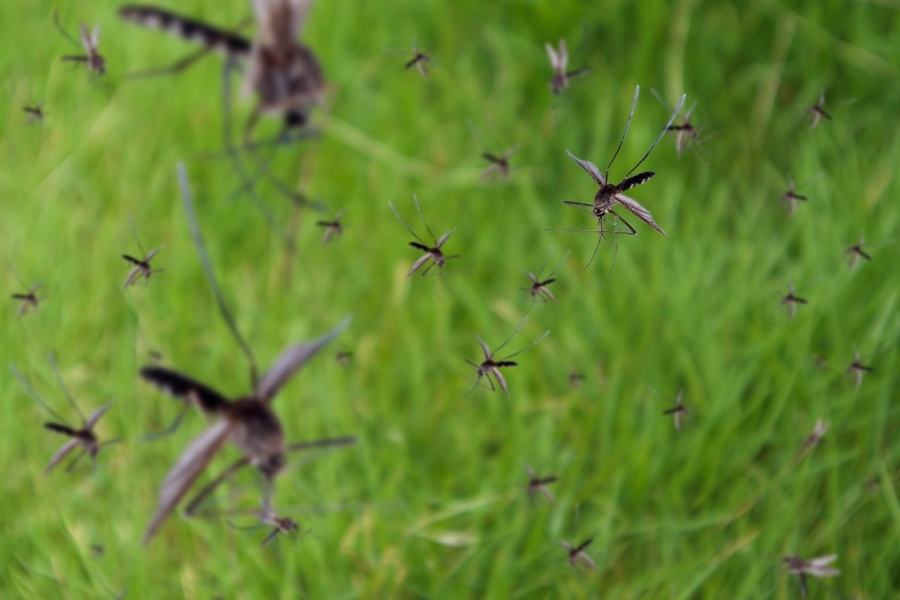West Nile Virus Detected in Delaware Sentinel Chickens

State of DE - The Delaware Department of Natural Resources and Environmental Control (DNREC) has confirmed the first detection of West Nile Virus (WNV) in the state for 2025.
Sentinel chickens used by the DNREC Mosquito Control Section for mosquito-borne illness surveillance tested positive. The chickens, located in three flocks across New Castle County, were sampled on August 11 and confirmed virus-positive on August 13 by the Delaware Division of Public Health (DPH) laboratory.
"The date of these detects is slightly later than our typical first detection date, historically the last week in July or first week in August - but is consistent with other WNV activity thus far this summer elsewhere in the mid-Atlantic and Northeast," said DNREC Mosquito Control Section Administrator Tom Moran.
Sentinel Chickens and Virus Detection
DNREC's Mosquito Control Section monitors mosquito-borne diseases, including WNV and Eastern Equine Encephalitis (EEE), using small flocks of sentinel chickens stationed statewide during summer and early fall.
Weekly blood samples from these chickens are tested for antibodies by the DPH lab. Although these chickens develop antibodies after being bitten by infected mosquitoes, they remain unaffected by the viruses.
A positive antibody detection indicates the presence of virus-carrying mosquitoes in the area. This enables DNREC to conduct further surveillance to determine the mosquito species involved and evaluate potential control measures.
Current Risks and Precautions
Although Delaware has not reported any human cases of WNV for 2025, the potential for mosquito-borne disease transmission remains until mid-October. Delaware recorded one probable human case of neuroinvasive WNV in 2024 but none so far this year.
Most individuals infected with WNV do not exhibit symptoms. However, approximately 20% may experience mild illness, including fever, muscle aches, headache, nausea, vomiting, and rash. Severe cases, though rare, can result in neurological complications, paralysis, or death. EEE, though less common, presents more severe symptoms and has shown higher mortalities in humans and horses.
Impact on Horses
The Delaware Department of Agriculture (DDA) reported six cases of WNV in horses in 2024, though no cases of WNV or EEE have been recorded in horses this year. The State Veterinarian's Office strongly advises horse owners to vaccinate their animals annually against WNV and EEE.
Vaccinations are highly effective, though booster shots are required each year. Neither disease has a specific treatment, and fatalities in horses reach 30% for WNV and up to 90% for EEE.
Horse owners can minimize risk by keeping horses indoors during peak mosquito activity at dawn and dusk, using topical insect repellents, employing fans in stalls to deter mosquitoes, and ensuring water troughs are cleaned and emptied every few days.
Mosquito Control Measures in Affected Areas
The DNREC Mosquito Control Section may deploy spraying efforts to reduce mosquito populations if warranted. Measures depend on the species of mosquitoes detected and their population levels.
Residents are encouraged to eliminate standing water around their homes to reduce mosquito breeding grounds. Problem areas include items such as birdbaths, clogged gutters, old tires, tarps, and buckets that collect water.
Common-sense precautions to avoid mosquito bites include wearing light-colored, long-sleeved clothing while outdoors, using insect repellents containing 10%-30% DEET as directed, and avoiding outdoors during peak mosquito activity at dawn, dusk, and night.
Additional Resources
Residents can access more information or assistance through the following contacts:
- Mosquito Biology/Ecology and Control:
- DNREC Mosquito Control Section, Dover Office - 302-739-9917 or dnrec.gov/mosquito
- Mosquito Relief Requests:
- Northern Delaware (Dover north), contact Glasgow Field Office - 302-836-2555
- Southern Delaware (south of Dover), contact Milford Field Office - 302-422-1512
- Animal Health Questions:
- DDA Poultry and Animal Health Section - 302-698-4500
- Human WNV Cases:
- DPH Office of Infectious Disease Epidemiology - 888-295-5156
Visit the Centers for Disease Control and Prevention (CDC) website for further details on WNV and EEE.


